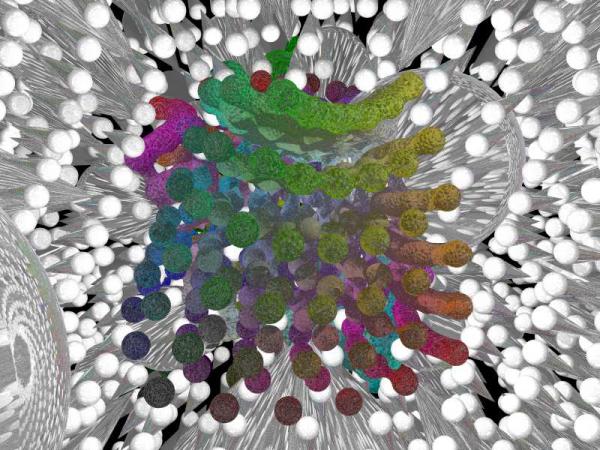BY LETTER
Archaitheology
Science > Archailectology
Sophonts > Archailects
Culture and Society > Metaphysics > Esotericism
Culture and Society > Metaphysics > Noetics
Culture and Society > Metaphysics > Religion
Sophonts > Archailects
Culture and Society > Metaphysics > Esotericism
Culture and Society > Metaphysics > Noetics
Culture and Society > Metaphysics > Religion
The worship of Transapients and/or Archailects as gods |
 Image from Anders Sandberg |
There are many different forms of archai worship.Solarism, Negentropism , Keterism, Sophism and Zoeticism are philosphical and religious creeds that are specific to certain empires within the Terragen Sphere, and all have archaitheological tendencies, some more than others.
Many schools of Omegism hold that the Archailects, or beings descended from them, will become supreme entities in the distant future.
Subtheism holds that there is a true God (or Gods) in (or outside of) the universe, and that the transapients and archai are subordinate to those gods. The Archai of the Terragen Sphere are lower in metaphysical status than real gods, but higher in metaphysical status than other sophonts. Some equate the Archai to demigods or angels, while others have derived entirely new categories for them.
Subsequentialists hold that the Supreme Entity of the universe, whatever form it may take, emerged after the origin of universe, and is therefore subject to all the physical laws of the universe.
Subsequentialist archaitheologists believe that the emergence of the Archai is an example of this sort of emergence, and that the Archailects are the most powerful beings in our local region of the universe; if there have ever been other, more powerful beings elsewhere in spacetime those beings are not (or no longer are) in causal contact with this region.
Certain schools of mysticism have also developed around archai worship, particularly Cyberhermeticism and Neohermeticism.
Related Articles
- AI God
- Archailect
- Archailect Empire
- Archailect Identity Theory - Text by M. Alan Kazlev
Doctrine that an archailect's avatars or epiphanies to lower toposophics represent a true and authentic (if scaled down) expression of the archailect. Contrast with Instrumentalism. - Archailect Incarnationalism - Text by M. Alan Kazlev
An extreme form of Identity Theory that states that an Archailect and eir avatar or epiphanic manifestation are the same. - Archailectology
- Archailectology, Schools of
- Archaiologists
- Archaitheocracy
- Cybergnosticism - Text by Anders Sandberg in Transhuman Terminology
The belief that the physical world is impure or inefficient, and that existence in the form of "pure information" is better and should be pursued. - Cyberhermeticism
- Keterism
- MPA Materialism
- MPA-Keterism - Text by Anders Sandberg
Syncretistic mixtures of MPA materialism and Keterism. The combination is an extroverted form of Keterism, seeking not just the individual perfection and maximization of potential, but also the awakening of potential wherever it exists. Widespread in the MPA, and often influencing the local politics. It is often recognized by the use of the dictum "Everything strives". Particularly dominant in the Jewelled Habitats in the Arkab Prior B necklace. - Negentropism
- Neohermeticism
- Omega
- Omega Point
- Omega Point Theology
- Omega Point Theory
- Solarism
- Sophic Materialism - Text by M. Alan Kazlev
Pantheistic or spiritual-materialist mystical, religious, or esoteric path common in the Sophic League, the TRHN, and elsewhere, involving modification of individual consciousness through gnostic drugs. Unlike traditional mysticism, there is little or no emphasis on transcendence of phenomena; indeed a deeper apperception of phenomena is considered the optimal outcome. Some spiritual groups see this as a positive option, others adopt a more neutral or even a negative view of it. - Sophism (Sophic League)
- Sophism, Lucidian
- Zoeticism
Appears in Topics
Development Notes
Text by Steve Bowers
Initially published on 20 August 2011.
Initially published on 20 August 2011.






